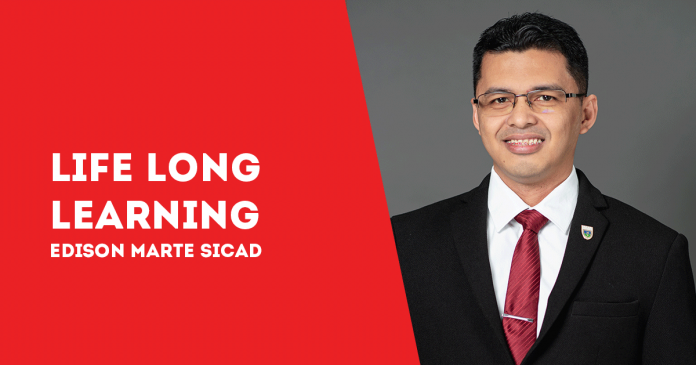
BY EDISON MARTE SICAD
“I like the word ‘indolence’. It makes my laziness seem classy.” — Bernard Williams
A FRIEND once shared to me how he and his officemates had found a way to never be late for work. This was then the time when a Bundy clock was considered an innovation compared to the usual logbook.
In their workplace, the Bundy clock was placed at the guardhouse. And such a strategic opportunity inspired an idea: befriend the security guard. Their friendliness was surely felt by the all too willing accomplice.
After some time, the management got suspicious with the punctuality of its employees. And so, the guard — poor thing — was replaced by a new, idealistic, good guard.
Being new, thinking that he has power over the all too punctual employees, he rejected their friendship. The idea supposedly was that when an employee “thinks” (or plans) that he or she will be late, the employee will just make a phone call at the guardhouse. The guard will just then insert the Daily Time Record card of that never-late employee in the Bundy clock. Of course, with the so many employees who think and plan ahead of time, the previous guard never found himself hungry. Neat.
But not this new guard. Late IS late. The employee must insert his or her own DTR card in person. A phone call is never considered as a “time-in.”
At first, it was all good for the new guard and all bad for the employees. But then, there is such a thing as teamwork. My friend and his colleagues found a way to make the good guard look bad in the eyes of the management.
The good guard was eventually replaced.
1. Why we work.
There is no such thing as easy work. And a difficult work does not necessarily mean a hateful job or a depressing profession. The Salary Grade in the government also means a responsibility threshold. All things considered, the lazier a person is, the lesser salary he or she will receive.
But then, there is also such a thing as manual work and brain work. Some jobs require repetitive physical output. Other jobs need a lot of mental or intellectual effort.
Simply put, while some employees only execute what is required (a to-do list), others think about the why, the how, and the interrelated factors to be considered in the process of deciding what to execute in one job that would complement the executions in other jobs.
Regardless of job descriptions, a person who has found a Why, who has a bigger picture of the work environment, will be more appreciative of work opportunities than an automaton employee.
2. My “Weekend” is my “Weekstart”.
This is what I learned while working in the Hall of Justice. This might seem trivial, but I believe that the language we use can affect our perspective of reality.
Momentum is very important to me now. For laziness is such an active distraction within and without. And I found out that the more determined a person is for personal and professional growth, the more observant he becomes of the work environment.
3. The main thing is to keep the main thing the main thing. – Stephen Covey
I am learning a lot about how to prioritize things. It can be a let-go moment, an all-out support mentality, or a workplace politics management. But the main idea is to hold on to my personal goal. The ultimate objective is to reach my goal no matter what and at the same time to work with competence and integrity.
Alice: “Would you tell me, please, which way I ought to go from here?”
The Cheshire Cat: “That depends a good deal on where you want to get to.”
Alice: “I don’t much care where.”
The Cheshire Cat: “Then it doesn’ t much matter which way you go.”
Alice: “…So long as I get somewhere.”
The Cheshire Cat: “Oh, you’re sure to do that, if only you walk long enough.” ― Lewis Carroll, Alice in Wonderland/PN







